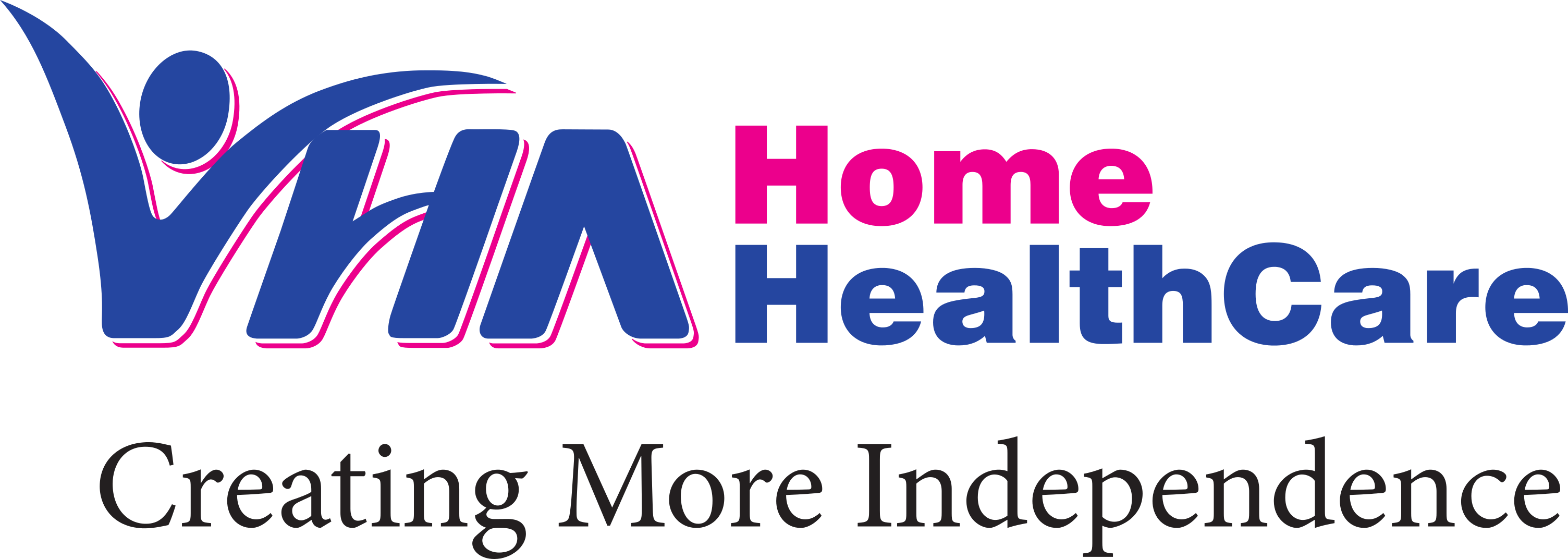Supporting a Safe and Healthy Work Environment in Home and Community Care

Violence, harassment and bullying against healthcare workers in all care sectors is not a new problem and has unfortunately continued to escalate since the start of the COVID-19 pandemic. As a Registered Nurses’ Association of Ontario (RNAO) Best Practice Spotlight Organization (BPSO), VHA Home HealthCare (VHA) has been working to implement evidence-based best practices to better prevent, recognize and manage these complex challenges to protect our care providers and positively impact client care.
The BPSO designation, first awarded to VHA in 2015, recognizes the implementation and evaluation of five Best Practice Guidelines (BPGs) developed by the RNAO over a three year period. Every two years the designation is reviewed for potential renewal and to date, VHA has successfully adopted seven BPGs. These have led to better client outcomes, continuity of care, quality improvement and enhanced client and care provider safety. Preventing Violence and Harassment and Bullying Against Health Workers is one of two BPGs that VHA is working towards within the 2021-2023 designation cycle.
“Many of our staff and service providers develop caring and meaningful bonds with the clients and families they care for,” notes Adam Benn, VHA’s Director of Diversity, Equity and Inclusion. “However, according to Workplace Safety Insurance Board data compiled in a report by the Ontario PSW Association, workers in ‘assisted occupations in support of health services,’ which includes PSWs, have the highest-risk jobs in Ontario. More specifically the Indigenous, Black, racialized and newcomer women, who hold the majority of these roles, are most likely to experience this type of violence at work.”
To safeguard against and prevent these issues, VHA has put together an interdisciplinary team made up of individuals from across the organization, co-led by the Best Practice and Education and Human Resources teams, to implement this BPG. After first completing a needs assessment to review existing processes and policies, gaps were identified and key areas of focus were set. The team then piloted multiple tools that are currently undergoing testing with PSWs and are expected to eventually roll out organization-wide for all care models.
“The tools we are testing include screening questions to be used at the start of the referral process before a PSW–or other care provider–ever enters the home. This can flag clients or caregivers who are potential risks to staff and service providers. As well, we have launched updated reporting processes for care providers to immediately disclose any harassment or violence after client visits so supervisors can follow up appropriately,” Adam said.
The BPG team also created an education program to help staff and service providers recognize different forms of violence and harassment, employ strategies to deescalate situations and communicate the importance of reporting incidents to prevent and minimize further injury.
“These critical steps will shorten the reporting and follow-up process, identify any trends of violence and empower and protect our staff and service providers,” Adam said.
As a Professional Practice Specialist on the Best Practice and Education Team, Janet Chan knows that one of the biggest struggles in the prevention of workplace violence and harassment is how often incidents go unreported.
“Data often captures the obvious cases where someone gets physically injured. However, far too often micro-aggressions, harassment or less severe incidents are brushed off, considered to be a part of this work or attributed to a client’s diagnosis,” Janet said. “One main pillar of our BPG efforts is to change this mindset and communicate that all types of violence or harassment—no matter how minor—should be acknowledged, reported and addressed,” she added.
“Our process of tracking supervisory follow-up supports revisions to care plans to ensure clients’ care needs are met and advocated for while making sure the appropriate supportive measures are in place for our staff and service providers,” Janet said.
VHA has long been a champion of evidence-based practices and decision-making at the point of care. In this fourth term as a BPSO designate, these efforts continue to demonstrate VHA’s commitment to quality improvement and safety as well as excellence in home care.
To learn more about the tools being used and their development, please click here to view a presentation about this work from the 2022 Canadian Injury Prevention Conference.
